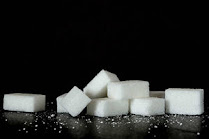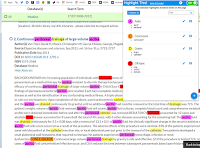Things to read...
Our online Reading Group met this last week and gave 'The Versions of Us' a score of 57%. Our next book is 'Ella Minnow Pea' by Mark Dunn. Ella Minnow Pea is a girl living happily on the fictional island of Nollop off the coast of South Carolina. Nollop was named after Nevin Nollop, author of the immortal pangram, "The quick brown fox jumps over the lazy dog." Now Ella finds herself acting to save her friends, family, and fellow citizens from the encroaching totalitarianism of the island's Council, which has banned the use of certain letters of the alphabet as they fall from a memorial statue of Nevin Nollop. As the letters progressively drop from the statue they also disappear from the novel. The result is both a hilarious and moving story of one girl's fight for freedom of expression, as well as a linguistic tour de force sure to delight word lovers everywhere. If you want to read along and join us for a chat we will be meeting online on Wednesday 4th November at 18:30 - 19:30 - contact the library for the joining link.Things to collect...
If you are searching our library catalogue for an item and want to ensure it is here ready for you then use our Click & Collect button. There is a short video here by the developers of our system to show you how it works.
Things about self-harm...
A report had been published by the All-Party Parliamentary Group on Suicide and Self-Harm
 Prevention supported by the Samaritans after their inquiry into the support available for young people who self-harm . Respondents to the inquiry made clear that the single most impactful change to improve the support available to young people who self-harm would be a system shift away from the current reliance on crisis interventions towards a preventative model of support. To facilitate this long term aim, planned investment in NHS mental health support for young people should be increased and brought forward more quickly than currently planned. Investment in community-based preventative services, often delivered by the third sector, will also be key.
Prevention supported by the Samaritans after their inquiry into the support available for young people who self-harm . Respondents to the inquiry made clear that the single most impactful change to improve the support available to young people who self-harm would be a system shift away from the current reliance on crisis interventions towards a preventative model of support. To facilitate this long term aim, planned investment in NHS mental health support for young people should be increased and brought forward more quickly than currently planned. Investment in community-based preventative services, often delivered by the third sector, will also be key.Things about sugar...
Public Health England publishes its third annual report on industry action to reduce sugar levels in products that contribute most to children’s sugar intakes. The latest report shows mixed progress across a range of food categories and sectors:
- retailer and manufacturer branded breakfast cereals and yogurts and fromage frais have seen some of the biggest falls in sales weighted average sugar – around 13% – between the baseline (2015) and year 3 (2019)
- sugar levels in chocolate and sweet confectionery are relatively unchanged, while product sales have increased, growing 16% and 7% respectively between 2015 and 2019
- average overall sugar reduction across all food categories stands at 3%
Things about kinship care...
The report of the Parliamentary Taskforce on Kinship Care First Thought Not Afterthought has been published. There are more than 180,000 children across the UK who are being raised by kinship carers – relatives or friends who have stepped in to help. They are often grandparents but also aunts, uncles, brothers, sisters, or even family friends. Many more children are raised in kinship care than in the care system and many more than are adopted, yet awareness of this element of children’s social care is low and support for families is variable and often very limited. This crucial third pillar of the children’s social care system is an afterthought. This report sets out a vision for a good quality system of kinship care where family are the first point of call and where kinship carers are valued and properly supported to deal with the many challenges they face. They present a series of recommendations which they believe the government, local authorities, and others should consider as a means to achieving that.
Things to enjoy ...
 Sheffield's Off the Shelf festival of words starts today until 31 October. Something for everyone, even if it is online this year. Examples include Live with the Sheffield Laureate - Otis Mensah and Warda Yassin in conversation with Magid Magid; Ladies Can’t Climb Ladders – Jane Robinson ; the Number Bias – Sanne Blauw in conversation with Professor Wyn Morgan ; Loud Black Girls ; Archeology of Sheffield Castle and Gender Swapped Fairy Tales. Some items are live and some pre-recorded find out more.
Sheffield's Off the Shelf festival of words starts today until 31 October. Something for everyone, even if it is online this year. Examples include Live with the Sheffield Laureate - Otis Mensah and Warda Yassin in conversation with Magid Magid; Ladies Can’t Climb Ladders – Jane Robinson ; the Number Bias – Sanne Blauw in conversation with Professor Wyn Morgan ; Loud Black Girls ; Archeology of Sheffield Castle and Gender Swapped Fairy Tales. Some items are live and some pre-recorded find out more.Things to make...
The branches of my apple tree are almost touching the ground this year with the weight of fruit, so its another apple recipe for me this weekend...and some more chutney. This one caught my eye this week from the National Trust - spiced toffee apple cake.
































